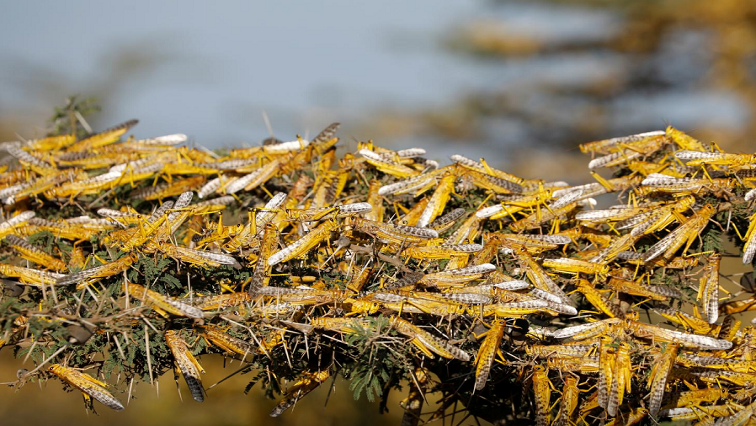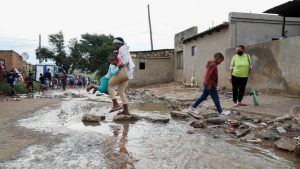The Department of Agriculture, Forestry and Fisheries announced earlier this month that the Free State, Northern Cape and Western Cape are currently experiencing outbreaks of locusts.
In October, the swarms of locusts descended upon vast areas of land in the Karoo in the Eastern Cape, devouring the grass and destroying crops on an already drought-stricken part of the country.
In February this year, East Africa experienced the outbreak.
Professor Frances Duncan from Wits School of Animal Plant and Environmental Sciences says a locust outbreak occurs when it starts raining after a prolonged drought.
Speaking on SAfm, Duncan says locust eggs which can stay underground for up to four years, start hatching after rainfall.
She says a locust outbreak can be prevented through ploughing and monitoring, however, it would be difficult to find the egg beds.
“There have been talks about ploughing of the land, if you plough it, you will get rid of the egg beds but that could upset that land. Our locusts are in the Karoo area, where there is very little ground cover. If you ripped up all that land and if you ripped up that land, you would get rid of the feed for the sheath, so it’s very difficult to know what to do, you couldn’t burn it because that wouldn’t help, ploughing could help but we don’t know where the egg beds are, so the best is to look into monitoring.”
Below is the interview with Prof. Frances Duncan:
Under control
Agri SA’s Risk and Disaster manager, Andrea Campher says the situation with regards to the locust outbreak is under control as there is no infestation on crop land but on graze land.
Dr Ben Kgakatsi, who is responsible for climate change and disaster risk management in the Department of Agriculture, Forestry and Fisheries, says they are controlling the locusts by spraying them with chemicals using spay pumps.
Northern Cape farmers on edge as swarms of locusts spotted
Swarms of locusts spotted in the eastern parts of the Northern Cape have farmers on edge. The insects have been seen around Britstown, Hanover, Noupoort, and Colesburg. Agri-Northern Cape and the Agriculture Department have asked people to report sightings. Locusts wreaked havoc in East Africa earlier this year.
Agri Northern Cape says good rains in the past few months have created ideal conditions for the locusts to breed. It’s feared they will move to other areas before they’re controlled. Swarms have also been seen in parts of the Free State.






